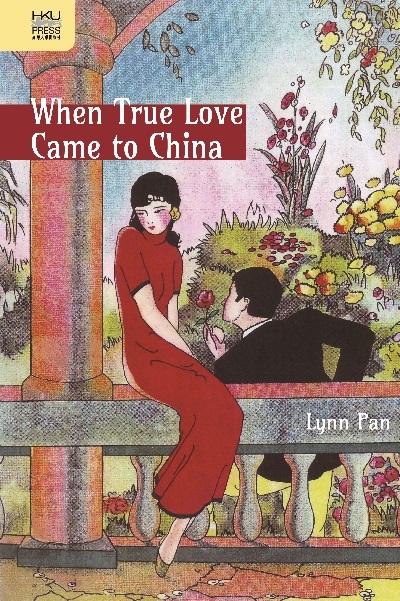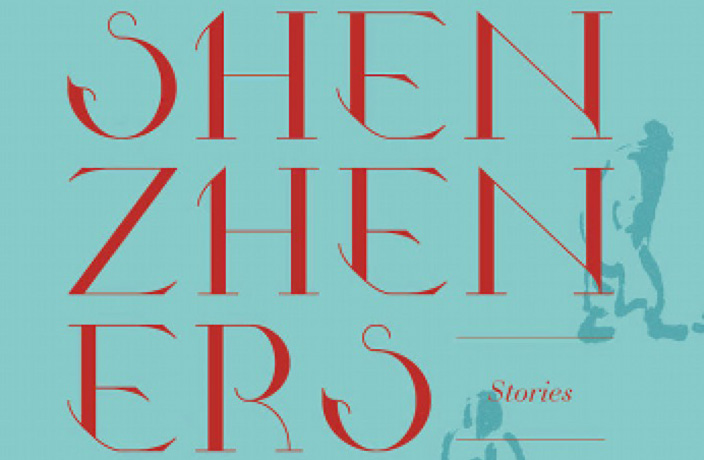What do the Chinese talk about when they talk about love? That’s the ambitious question the great cultural explainer Lynn Pan addresses in this fascinating study, whose lightness of touch belies impressive research.
There was a clear moment in 20th century China when impatience for reform coalesced – the May Fourth Movement, springing from fury that, after greatly contributing to victory in the First World War, the nation was humiliated by the Treaty of Versailles, with German concessions in Shandong handed over to Japan rather than returned to China.
 On May 4, 1919, in Beijing, students and intellectuals rose up in protest at the government’s weak response. The movement became in part a push for more liberal values, to revive China and make it strong again by learning from Western ideas. And one of these ideas was love.
On May 4, 1919, in Beijing, students and intellectuals rose up in protest at the government’s weak response. The movement became in part a push for more liberal values, to revive China and make it strong again by learning from Western ideas. And one of these ideas was love.
“What were they talking about when they talked about love? They were thinking and talking about a liberation from the dark tyranny of ‘feudal’ matchmaking, about free will and individualism and self-determination.”
“They were condemning inequality and sexual double standards, how unfair it was to demand chastity and constancy of women while tolerating male philandering and polygamy.
They were talking about the New Woman and clamoring for a release from Confucian prudery. They were rejecting sanctimoniousness and hypocrisy and calling for a new and superior morality based on love.”
Of course, this is more about clarifying what love should not be. Vigorous debate on what it actually meant ensued in periodicals and letters, while Western films and books circulated freely. For a while, China had among the most liberal divorce laws in the world, with no-fault divorce available when countries like France still didn’t have it.
Classical literature about love was judged harshly “as being either pornographic or formulaic. The first kind has lovers giving in readily to consuming passion and clandestine sex; while the second, the so-called ‘scholar-beauty’ romance, pairs a talented scholar with a chaste and clever maiden... love is often at first sight and unmarried lovers frequently fall ill from unassuaged longing.”
Pan looks at writers of the decades to follow, the people who influenced ideas about love the most. Their romantic experiences, and the way they inspired or bled into the work, is what she finds telling.
“There is love and ‘love.’ The former is what people actually experience (which it is impossible for another person to know), while the latter is what they say they experience.” And this demands people with the skill to express it.
The great Lu Xun, full of modern ideas but tricked into marrying an illiterate woman with bound feet, treated his wife with a level of disdain that is hard to read about even now.
Eileen Chang, the most modern of Chinese prose stylists, wrote with ironic detachment from matters of the heart, but professed herself helpless when she fell for a notorious traitor who worked for the puppet regime in Nanjing during Japanese occupation.
Even the word used for love had to be decided. “When airplanes, corporations, high-rise buildings and other modern things were introduced to China from the West, Chinese names had to be coined for them. The same goes for peculiarly Western notions.”
Language had to move from the classical si – ‘longing’ – and haose – roughly, ‘lust’ – through qing – closer to ‘sentiment’ or ‘feeling’ – until the classical word ai, compounded as lianai, was repurposed to take on the meaning of love in the modern sense.
This kind of questioning of basic concepts was new and intoxicating, though Pan is not sure that a successful synthesis of this Western concept with Chinese culture has been achieved, even now.
“Westerners are quick to say what love is and what it is not... they are quick to analyze it too; there is hardly a book on the subject that does not speak of kinds of love. Such concerns became a new frame in which the Chinese learned to place their feelings. Today the Chinese who try to make sense of their feelings in terms of it do so with little grasp that it is a cultural construct, not objective reality but merely one way... of carving up the semantic domain of ‘love.’”
Modern China can seem determined to import the worst of Western culture while carefully filtering out the valuable aspects. Love in the Western tradition evokes a duality of body and soul – then an unknown concept in China – and a separation of love and sex, as well as the idea that the purity of true love brought one closer to god.
It seems a pity to put away outmoded and often cruel concepts of obedience and entrenched sexism, only to adapt new superstitions around sex and love, and this debate has yet to resolve itself.
This is a superb work of scholarship, and fascinating throughout. We lovingly recommend it.
Lynn Pan: When True Love Came to China (Hong Kong University Press) is available on Amazon.
For more book reviews, click here.






















0 User Comments